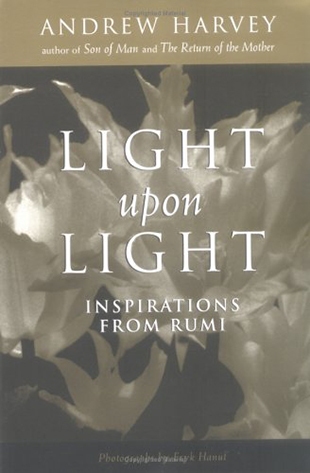In this ambitious work, Andrew Harvey draws upon two decades of devoted study and mystic fervor to present 250 selections from Rumi, the thirteenth century Sufi poet. These poems, parables quotations, and discourses are from Rumi's major works: the Discourses, the Diwan, the Mathnawi, the Odes, the Rubaiyat, as well as excerpts from his letters. Harvey's primary sources include the work of A. J. Arberry, E. H. Whinfield, R. A. Nicholson, W. C. Chittick, and the French translations of Eva de Vitray-Meyerovitch. For those who also have the author's The Way of Passion: A Celebration of Rumi, these two books can be savored in tandem. Thirty-five black-and-white photographs by Eryk Hanut provide a fine addition to the dazzling material in this volume.
Harvey notes: "I have selected those passages and poems which have most shaken and helped me in my own search, and organized them into a five-part mystical symphony. The texts are presented in a complex musical order and unfolding that mirrors the order and unfolding of the mystical journey into Love itself. I hope to communicate the authentic rhythms of awakening, with its alternating, mutually illuminating periods of expansion and contraction, passion and discipline, ecstasy and necessary — and repeated — ordeal."
Rumi repeatedly rejoices in the sense that he lives in "the kingdom of joy." He conveys the feeling of closeness to the Divine of an ecstatic mystical experience. Equally evident is his jubilant knowledge that we are beloved God. These realizations result in the adoration that Rumi speaks of as a sign of the Path of Love. What is a fitting response to this glorious state? Rumi tells a parable:
"A friend of Joseph's came to visit him after returning from a long journey. 'What present have you brought me?' Joseph asked. 'What could I bring you,' his friend replied, 'that you don't already have?' 'But,' he added, 'because you are so beautiful, and nothing exists in all the worlds more beautiful than you, I have brought you a mirror, so you can know the joy at every moment of seeing your face.'
"Is there anything that God doesn't have already that you could give Him? Is there anything that God could need that you could possibly provide? All you are here for, and the entire meaning of the Path of Love, is to bring before God a heart bright as a mirror, so God can see His own face in it."
We also like the way Rumi stretches our imagination with startling metaphors. For example, "Anyone who gambles away his life on this path, will, like the Prophet, be rewarded beyond his dreams." And "If you are one of the People of God, you will be preoccupied with and absorbed by nothing but God. All worldly desires will be to you like the lusts of a man who cannot get an erection; they will not be able to take real root and will shrivel."
Rumi keeps us on our toes straining for fresh ways to consider the mystery that is at the core of our being and in the midst of our days and doings. These translations succeed in stirring our souls and giving us ample opportunities to savor again the inspired devotion of this Sufi mystic.
